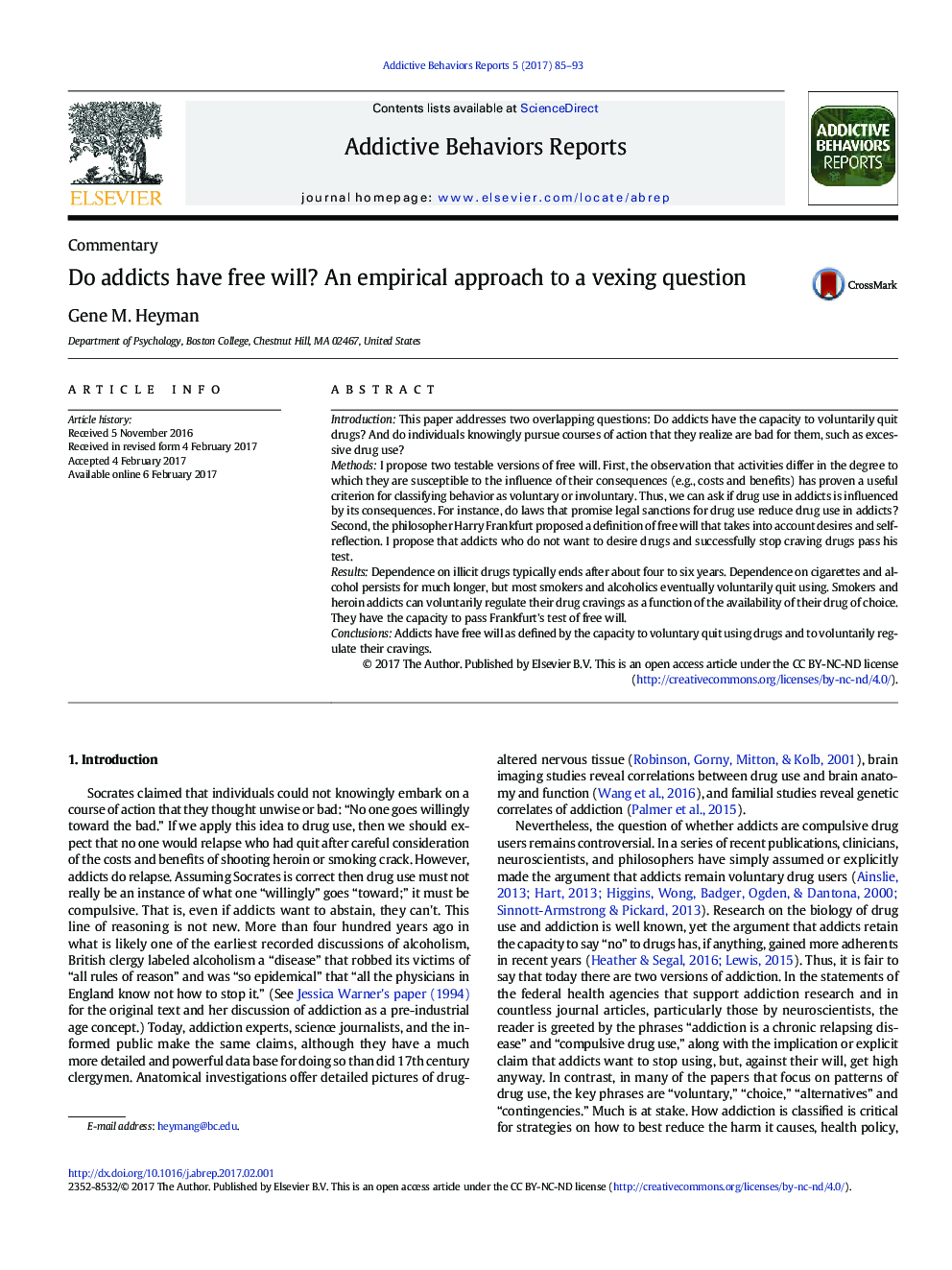| Article ID | Journal | Published Year | Pages | File Type |
|---|---|---|---|---|
| 5037959 | Addictive Behaviors Reports | 2017 | 9 Pages |
â¢Research shows that addiction is typically a limited not chronic disorder.â¢Most addicts reduce drug use voluntarily.â¢Smokers and heroin addicts can regulate their cravings as a function of drug availability.â¢According to testable definitions of voluntary behavior and free-will, addicts have both.
IntroductionThis paper addresses two overlapping questions: Do addicts have the capacity to voluntarily quit drugs? And do individuals knowingly pursue courses of action that they realize are bad for them, such as excessive drug use?MethodsI propose two testable versions of free will. First, the observation that activities differ in the degree to which they are susceptible to the influence of their consequences (e.g., costs and benefits) has proven a useful criterion for classifying behavior as voluntary or involuntary. Thus, we can ask if drug use in addicts is influenced by its consequences. For instance, do laws that promise legal sanctions for drug use reduce drug use in addicts? Second, the philosopher Harry Frankfurt proposed a definition of free will that takes into account desires and self-reflection. I propose that addicts who do not want to desire drugs and successfully stop craving drugs pass his test.ResultsDependence on illicit drugs typically ends after about four to six years. Dependence on cigarettes and alcohol persists for much longer, but most smokers and alcoholics eventually voluntarily quit using. Smokers and heroin addicts can voluntarily regulate their drug cravings as a function of the availability of their drug of choice. They have the capacity to pass Frankfurt's test of free will.ConclusionsAddicts have free will as defined by the capacity to voluntary quit using drugs and to voluntarily regulate their cravings.
